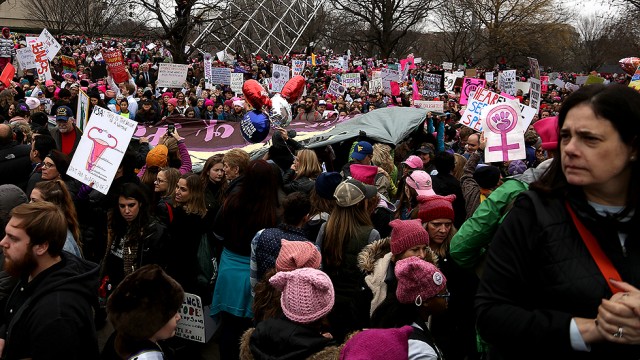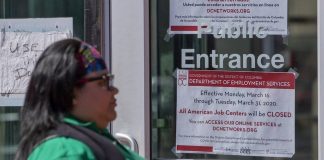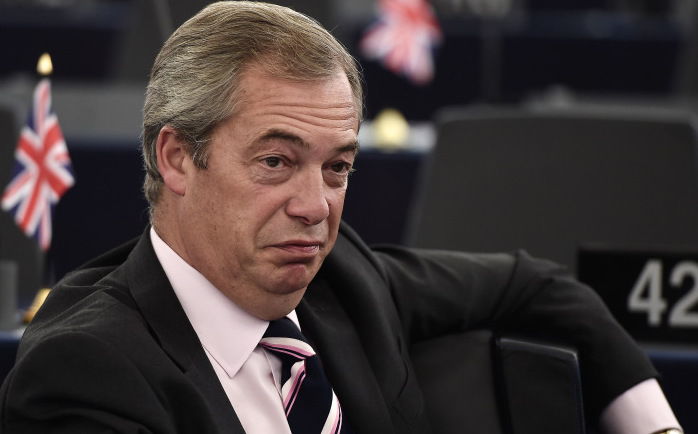
Republican lawmakers advance bills to criminalize mass protests.
Lawmakers in 18 state legislatures have introduced bills that would expand penalties for protesters. The pieces of legislation follow protests against President Donald Trump, the construction of the Dakota Access Pipeline and law enforcement shootings of unarmed African Americans.
Since the January inauguration of Trump, over a dozen state legislatures have considered bills that would increase penalties for protesters or make it easier for law enforcement to disperse crowds.
On Feb. 23, Republican Gov. Doug Burgum of North Dakota signed four bills into law that will expand the definition of trespassing and increase law enforcement’s abilities to fine protesters. The new laws follow the climax of protests against the Dakota Access Pipeline, which had been protested by Native American tribes and environmental activists.
The South Dakota Legislature are considering a bill that would establish a safety zone during riots that would incur fines if anyone entered them. The Oklahoma Legislature is considering increasing legal penalties for protesters who trespass on pipelines or railways, while the Colorado Legislature is considering a bill that would increase penalties for protesters who tamper with oil and gas equipment.
Meanwhile, lawmakers in Iowa, Indiana, Minnesota, Mississippi and Washington state are considering bills that would stiffen penalties for protesters who block highway traffic. The Georgia Legislature is considering legislation that would increase penalties for protesters who block not only highways, but any public streets or sidewalks.
Both the Florida and Tennessee Legislatures are considering bills that would provide civil immunity to drivers who inadvertently run over protesters who block roads.
The Arizona Legislature will also consider a bill that would amend the state’s anti-racketeering laws to extend towards protest organizers, allowing law enforcement to arrest and seize the assets of anyone responsible for protests that devolve into riots.
Senior attorney Lee Rowland of the ACLU’s Speech, Privacy and Technology Project has asserted that these bills are an overreach to counter the heated political mood of the country.
“Robust protest activity is a sign of the health of our republic… To see legislators in these states make it a priority not to listen to the voices of the constituents, but to silence them, is deeply troubling and fundamentally un-American,” Rowland told The Hill.
The bills have been proposed following years of growing protest in the country. On Feb. 21, over 3 million people joined the Women’s March on Washington to protest Trump’s inauguration, the largest protest in American history.
Sociology professor Douglas McAdam of Stanford told The Washington Post that states have historically introduced legislation to counter protest movements, noting that southern legislatures had responded to the Civil Rights movement of the 1950s with “dozens and dozens of new bills outlawing civil rights groups, limiting the rights of assembly… all in an effort to make civil rights organizing more difficult.”
McAdam added that lawmakers have historically worked to discredit protest movements as paid by special interest groups, citing Democrats’ accusations that the Tea Party movement had been funded by the billionaire Koch family.
“In all these cases, including the present, the charges are generally bogus, with the vast majority of protesters principled individuals motivated by the force of deeply held values and strong emotion,” McAdam said.
On Feb. 3, Trump took to social media to blast protests against his presidency, ABC 7 News reports.
“Professional anarchists, thugs and paid protesters are proving the point of the millions of people who voted to MAKE AMERICA GREAT AGAIN!” Trump tweeted out.













